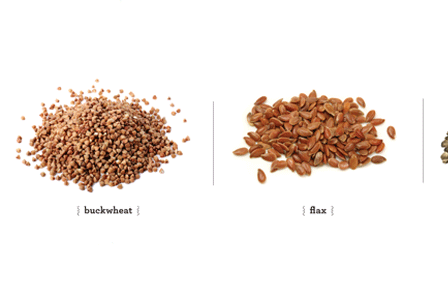
For about eight years, I thought I had hay fever. Thinking they were simply the result of pollen, I just put up with them. But as it turned out, they weren\’t.
For about eight years I thought I had hay fever. With the onset of each spring came stuffed-up sinuses, watering eyes, and mild flu-like symptoms. Thinking they were simply the result of pollen in the air, I just put up with them. But as it turned out, they weren’t.
Spring is when I’d begin ramping up cycling mileage in preparation for the upcoming race season. As cycling mileage increased, so too did my consumption of the carbohydrate-based concoction I’d sip to keep fuelled as I rode. Eventually making the connection, I realized it was my increased consumption of this sport drink that was causing the symptoms.
The corn connection
I learned that most energy drinks derive their carbohydrate from maltodextrin—a cheap, highly processed derivative of corn. I hadn’t realized it until this point, but I had a sensitivity to corn. It was the processed corn product causing my hay fever-like symptoms, not actually hay fever.
As I found out, certain food sensitivities are common. Common allergens include wheat, yeast, gluten, soy, dairy—and yes, corn. It would be near impossible to find any processed food that doesn’t contain at least two of these. If you consume a substance that your body is sensitive to, symptoms will arise. They can include general fatigue, trouble sleeping, bloating, rash, congestion, and flu-like characteristics.
Identifying allergens
If you experience these symptoms regularly or notice a general “sub-par” feeling, you may want to investigate further. An effective way to determine if you have a sensitivity is to systematically eliminate one common allergen at a time from your diet. This is appropriately called an elimination diet.
Within a week to 10 days, if you are, in fact, sensitive to that particular food, your symptoms will subside. If enlisting the guidance of an expert appeals to you, I’d suggest a visit to a naturopathic doctor. They are well-versed in this process and can provide an excellent starting point.
Once you’ve identified and removed specific-to-you allergens from your diet, clearly the challenge then comes in finding common-allergen-free food. Fortunately, more options are becoming available as the pervasiveness of allergens is being understood.
As for the carbohydrate-based sport drink, I now sip one made with organic, sprouted, whole grain brown rice syrup, organic palm nectar, and coconut oil.
Some nutrient-rich ingredients can be worked into recipes in place of common allergens. Try substituting buckwheat (not actually wheat, just given a bad name), chia (Salvia hispanica L.), hemp, flax, and sorghum.




























